Live and On-Demand Insights for MTSS & RTI Success
Learn from education leaders and explore practical strategies to strengthen your student support systems.

Upcoming Webinars

Leading MTSS at Scale: Branching Minds Tools for Districtwide Collaboration and Time Savings
📆 Feb 24, 1:00 ET
Strong MTSS implementation depends on aligned practices across schools, teams, and roles. This live demo is designed for district and school leaders who want a clearer, more consistent way to help teams manage collaboration, meetings, and intervention planning throughout their district.
Register now
Feb 24, 1:00 ET
On-Demand Library
.png?width=2700&height=1411&name=College%20and%20Career%20Readiness%20(1).png)
EQ + MTSS: Preparing Students for College and Career Success
📆 Jan 21, 1:00 ET
This session explored how districts support students beyond credits through coordinated, student-centered College and Career Readiness systems. Leaders shared practical strategies for aligning academic and behavioral supports, tracking readiness milestones, and preparing students for life after high school.
Watch now
.png?width=2100&height=1097&name=10.23.25-6-Week-Check-In%20(tile).png)
The 6-Week Intervention Check-In
This session will help you interpret progress monitoring data, including key metrics like rate of improvement (ROI) and fidelity of implementation. You’ll learn how to make decisions about whether to continue, intensify, or pivot your support plans. Walk away with a toolkit for turning data into action.
Watch now
.png?width=1200&height=1200&name=08.25%20-%20How%20to%20Structure%20MTSS%20Teams%20for%20Better%20Student%20Outcomes%20(1).png)
How to Structure MTSS Teams for Better Student Outcomes: Collaboration, Action, and Accountability
Do your MTSS teams spend more time talking about problems than solving them? Are the right people even at the table? This edLeader Panel will help you structure your MTSS teams, clarify roles and responsibilities, and run focused meetings that lead to real outcomes.
Watch now
.png?width=1000&height=500&name=Mini-Summit-2025(preview).png)
2025 MTSS Mini Summit: Behavior Deep Dive
This year's Mini Summit is a deep dive into MTSS behavior intervention for students with intensive needs, including screening, determining the function of behavior, intervention and de-escalation strategies, connecting with challenging students, and more.
Watch now
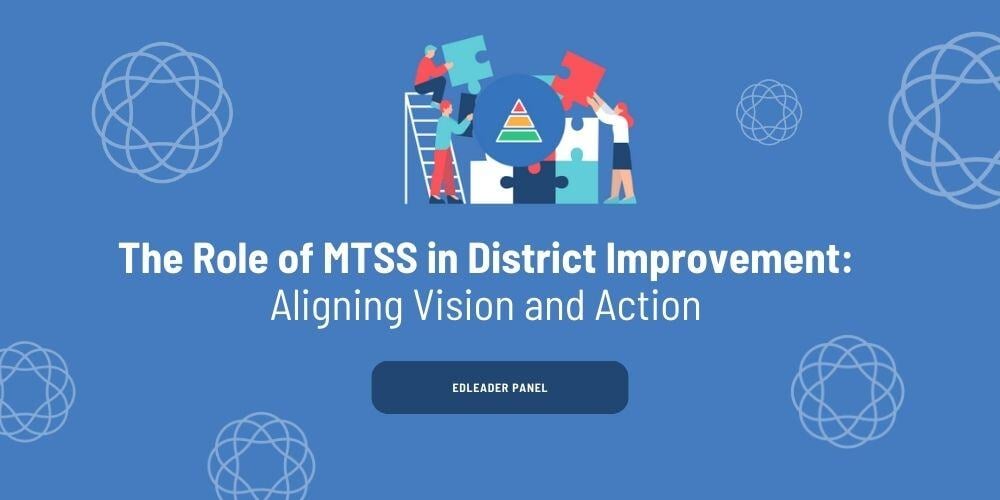
The Role of MTSS in District Improvement: Aligning Vision and Action
During this edLeader Panel, “The Role of MTSS in District Improvement: Aligning Vision and Action,” three top-notch current and former district leaders discussed change management, focusing on how a Multi-Tiered System of Supports (MTSS) can provide an organizing framework for accomplishing strategic goals.
Watch now
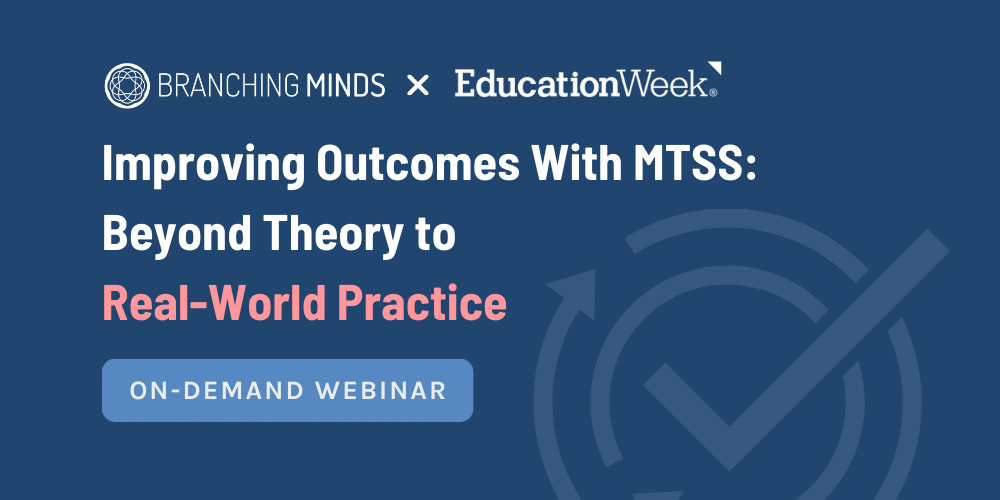
Improving Outcomes with MTSS: Beyond Theory to Real-World Practice
Join the Branching Minds team of learning scientists and experienced educators as they share their learning engineer approach that reduces the obstacles to implementing a Multi-Tiered System of Supports from a best-practice perspective.
Watch now
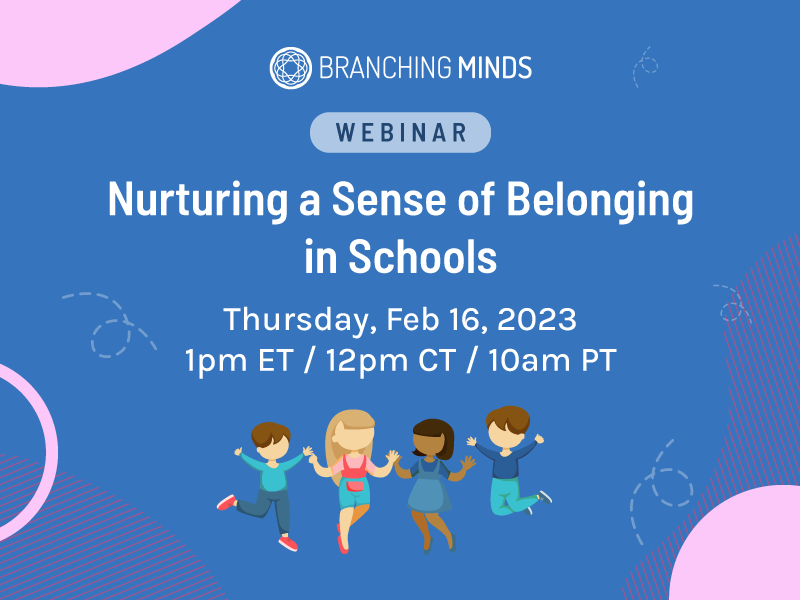
Nurturing a Sense of Belonging in Schools
This webinar will focus on the importance of creating a supportive and inclusive environment in schools, and will highlight research supporting best practices for fostering student belonging. Specific district- and school-level practices and policies that support this work will be discussed.
Watch now
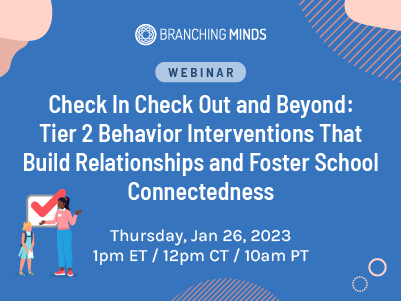
Check In Check Out and Beyond: Tier 2 Behavior Interventions That Build Relationships and Foster School Connectedness
Join us for this webinar to review best practices for Check In and Check Out, plus several additional Tier II behavior interventions that involve your wider school community in building relationships and supporting struggling students.
Watch now
Ready to Make Student Support Simpler and Stronger?
Discover how Branching Minds streamlines MTSS, empowers educators, and improves student outcomes, starting today.
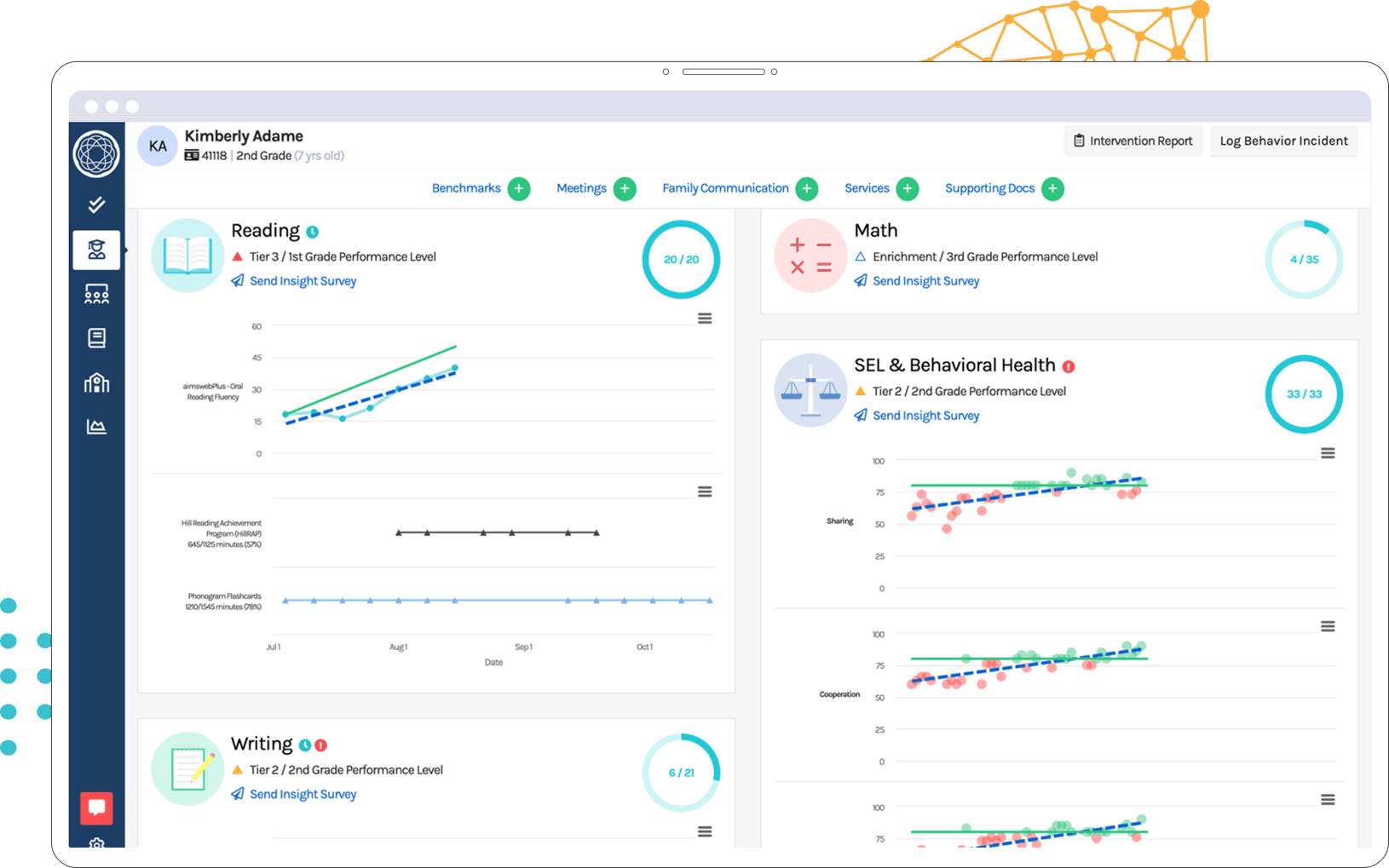













%20(8).png?width=1436&height=715&name=2026%20MTSS%20MINI%20SUMMIT%20LOGO%20(draft)%20(8).png)
.png?width=1800&height=940&name=It%E2%80%99s%20Not%20Magic%20-%20It%E2%80%99s%20MTSS%20(webinar).png)


.png?width=400&height=300&name=Ask%20the%20Author%20%20Executive%20Functions%20for%20Every%20Classroom%20(preview).png)
.png?width=2770&height=2075&name=06.25%20-%20Behavior%20and%20%20Branching%20Minds%20LIVE%20DEMO%20(preview).png)


















.png?width=800&height=600&name=The%20Power%20in%20%20Progress%20Monitoring%20(2).png)




![Tier 3 Behavior Planning and Wraparound Supports [Part 2]](https://www.branchingminds.com/hs-fs/hubfs/Tier%203%20Behavior%20Planning%20and%20Wraparound%20Supports%20%5BPart%202%5D.jpg?width=500&height=500&name=Tier%203%20Behavior%20Planning%20and%20Wraparound%20Supports%20%5BPart%202%5D.jpg)
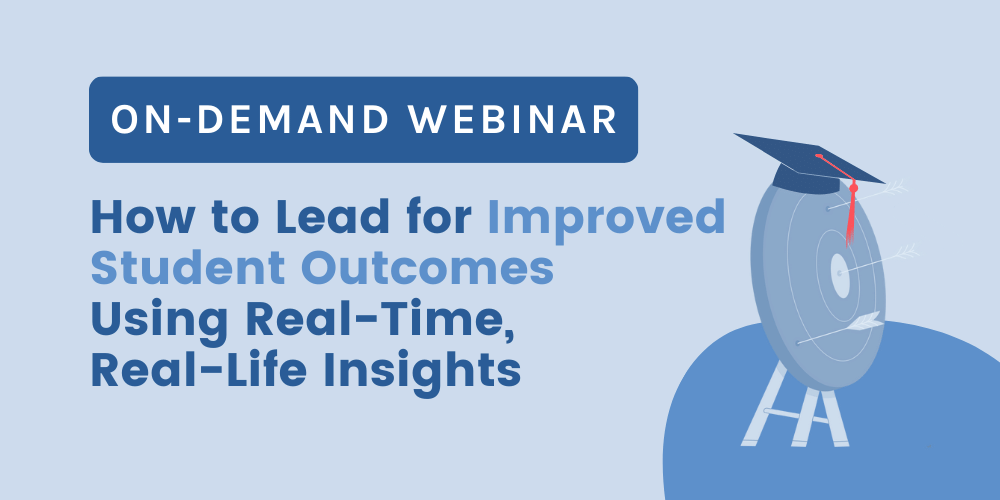




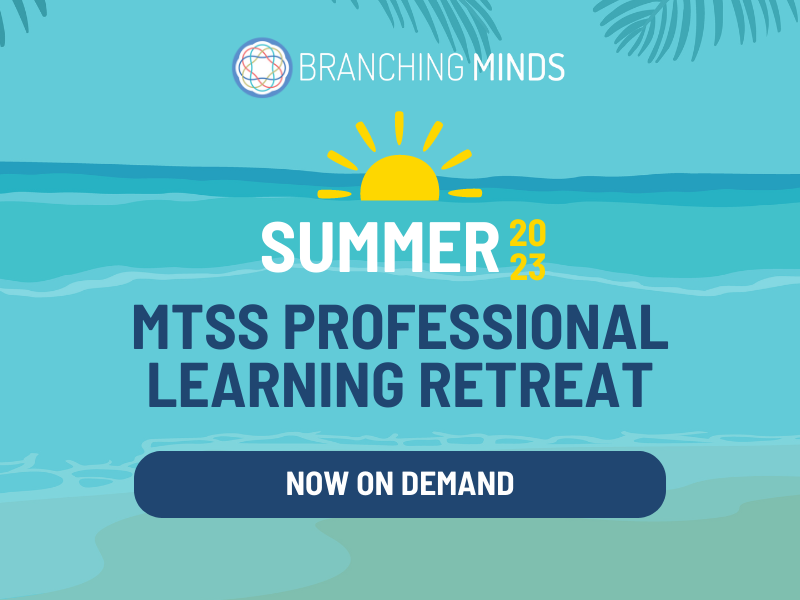





/jed_preview_1.png?width=800&height=600&name=jed_preview_1.png)
@x2.png?width=800&height=600&name=03_01_23%20webinar5_preview(nodates)@x2.png)

